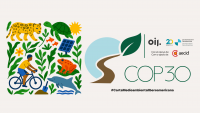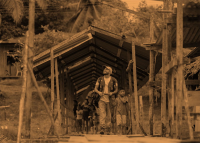March 8th | International Women's Day
"Let us devote solid funding, courageous advocacy and unbending political will to achieving gender equality around the world. There is no greater investment in our common future." — Ban Ki-moon, UN Secretary-General
 International Women’s Day is a time to reflect on progress made, to call for change and to celebrate acts of courage and determination by ordinary women who have played an extraordinary role in the history of their countries and communities.
International Women’s Day is a time to reflect on progress made, to call for change and to celebrate acts of courage and determination by ordinary women who have played an extraordinary role in the history of their countries and communities.
The 2016 theme for International Women’s Day is “Planet 50-50 by 2030: Step It Up for Gender Equality”. The United Nations observance on 8 March will reflect on how to accelerate the 2030 Agenda, building momentum for the effective implementation of the new Sustainable Development Goals, especially goal number 5: Achieve gender equality and empower all women and girls; and number 4: Ensure inclusive and quality education for all and promote lifelong learning. It will equally focus on new commitments under UN Women’s Step It Up initiative, and other existing commitments on gender equality, women’s empowerment and women’s human rights.
The official UN commemoration will take place in the Trusteeship Council at the UN Secretariat in New York City from 10 a.m.-12.45 p.m. It will consist of a series of musical performances and two panel discussions. The first, from 10-11.15 a.m., will reflect on what a gender-equal planet means and how to achieve it by 2030 by joining the efforts of the United Nations, governments, civil society and the private sector. For the second panel, entitled “The Push for Parity”, panelists will probe the progress made in achieving gender equality in the UN system, examine the challenges remaining and unpack how to mainstream gender perspectives from 11.15 a.m.–12.45 p.m.
Some key targets of the 2030 Agenda:
• By 2030, ensure that all girls and boys complete free, equitable and quality primary and secondary education leading to relevant and Goal-4 effective learning outcomes;
• by 2030, ensure that all girls and boys have access to quality early childhood development, care and preprimary education so that they are ready for primary education;
• end all forms of discrimination against all women and girls everywhere;
• eliminate all forms of violence against all women and girls in the public and private spheres, including trafficking and sexual and other types of exploitation;
• eliminate all harmful practices, such as child, early and forced marriage and female genital mutilation.



